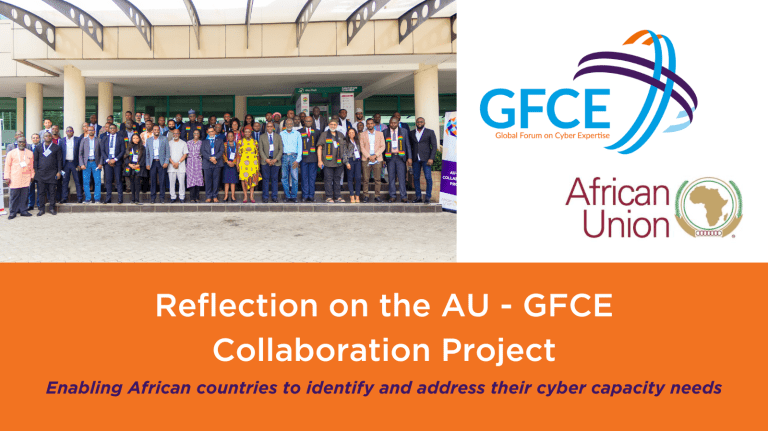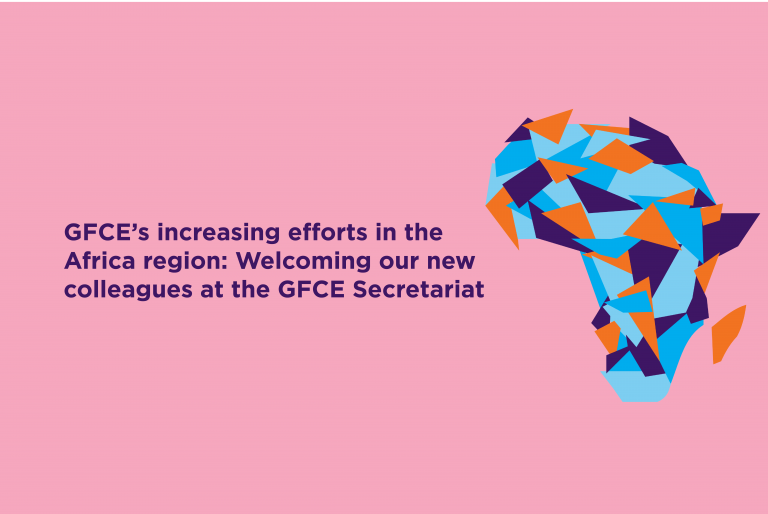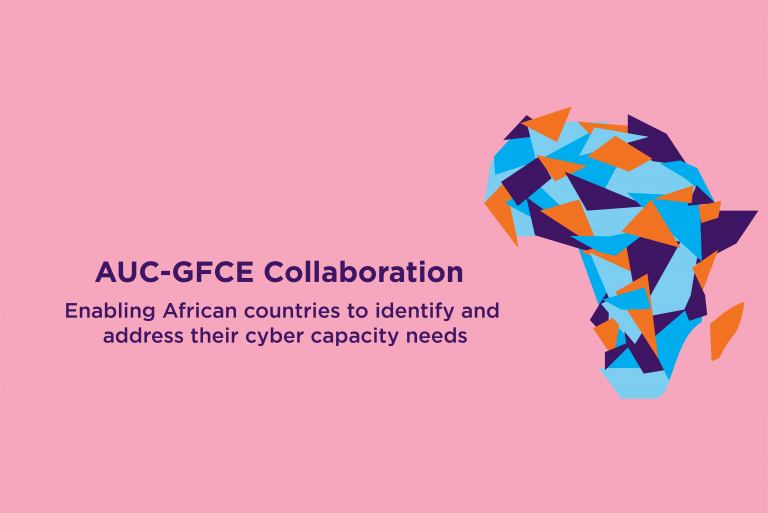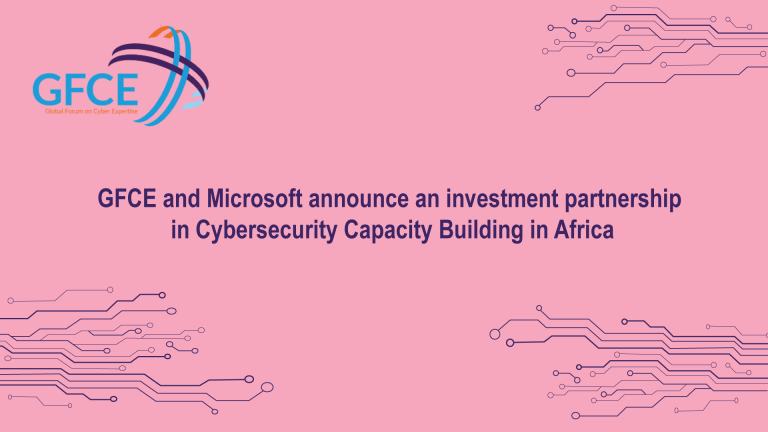Reflection on the AU-GFCE Collaboration Project

Summary In the two years since its inception in 2020 the Collaboration project between the African Union and the Global Forum on Cyber Expertise, sponsored by the Bill and Melinda Gates Foundation, has made a tangible mark in the cyber capacity building (CCB) landscape in Africa. With an active network of cyber experts (the African […]
GFCE’s increasing efforts in the Africa region: welcoming our new colleagues at the GFCE Secretariat

Following the success of the GFCE Annual Meeting 2019 in Addis Ababa and the need identified within the GFCE Community, the GFCE will be increasing its efforts in the Africa region. Given this, the GFCE has devised a two-tier approach: 1) bringing together the GFCE community and coordinating cyber capacity efforts in the African region, […]
AUC-GFCE Collaboration: “Enabling African countries to identify and address their cyber capacity needs”

News Item | 8 March 2021 The Global Forum on Cyber Expertise is happy to announce its collaboration with the African Union Commission (AUC) on “Enabling African countries to identify and address their cyber capacity needs” through a two-year project. IntroductionDigital financial services can reach excluded and underserved populations quickly and efficiently, making it a vital strategic pillar […]
GFCE and Microsoft announce an investment partnership in Cybersecurity Capacity Building in Africa

News Article | 13 November 2020 The GFCE and Microsoft have agreed to partner to increase cyber capacity building efforts in Africa, through a program focusing on unifying existing cyber capacity building efforts and strengthening the understanding of the cyber capacity needs of the continent. As Microsoft has been a founding member of the […]
Announcement: African Union Commission (AUC) confirms to host the GFCE Annual Meeting 2019 in Addis Ababa, Ethiopia.

The GFCE Secretariat is pleased to announce that the African Union Commission (AUC) officially confirmed to host the GFCE Annual Meeting 2019 in Addis Ababa, Ethiopia from 8-10 October 2019. The official photo moment in the African Union Headquarters. The objective of the GFCE Annual Meeting 2019 is to move further towards cyber capacity building […]
GFCE continues to grow: A warm welcome to Austria and Mauritius

News item | 16-10-2017 We are proud to announce Austria and Mauritius as the newest members of the GFCE community. This adds up to a total of 63 members united to strengthen global cyber capacity efforts. Please read a quick introduction of both members below. Austria The BKA recognizes the importance of strong global networks and prevention of duplication, […]
Cybercrime and Cybersecurity Trends in Africa
A new study by Symantec and the African Union provides a detailed analysis of the latest trends on cybercrime and cybersecurity on the African Continent. The report reveals both the economic potential of cyber in Africa with an estimated market value of 75 million USD in 2025 and the extent of cyber threats, especially with […]
African Diplomats train to stand their ground in Cyber Negotiations
On the 15th and 16th of February 2016 the Capacity Building Workshop for Diplomats took place in Addis Ababa (Ethiopia) jointly organized by the African Union Commission (AUC) and ICT for Peace foundation (ICT4Peace). The workshop aimed to promote confidence in the use of ICTs among African diplomats and was focused on international cyber security […]
